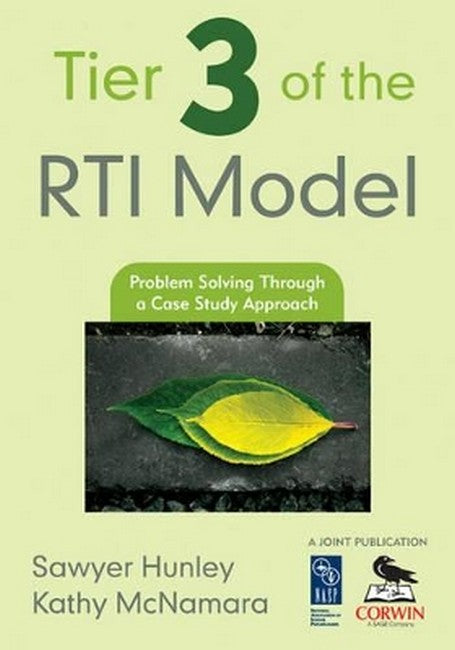Sawyer Hunley is an associate professor, the coordinator of the School Psychology Program, and a Learning Teaching Fellow at the University of Dayton. She is chair of the National Certification Board for the National Association of School Psychologists, and was instrumental in revising the procedure for obtaining the National Credential of School Psychologists (NCSP). Hunley has served as a member of the Program Approval Board for the National Association of School Psychologists, and has participated in the writing of the last three revisions of the NASP Standards. Her professional and research interests include systems change for K-12 and higher education. Her publications and presentations have focused on the nature of the changing field of school psychology, data-based decision making, and the relationship between learning space and teaching/learning. She has over twenty years of experience as a school psychologist practitioner, supervisor, and faculty member. Kathy McNamara is a professor of psychology at Cleveland State University, where she directs the School Psychology Specialist degree program. She currently serves as chair of the Ethics and Professional Practices Committee of the National Association of School Psychologists, and has been active in the leadership of the Ohio School Psychologists Association since 1984. She has published chapters on social competence and professional ethics in the NASP Best Practices series. McNamara's research focuses on intervention-based school psychological services, and her work in this area has been published in The School Psychology Review, the Journal of Educational and Psychological Consultation, and Exceptional Children. She has conducted numerous trainings of school psychologists, teachers, and administrators, and consults with school districts regarding implementation of the RTI model. McNamara has served for thirty years as a school psychologist practitioner, supervisor, and faculty member.
Request Academic Copy
Please copy the ISBN for submitting review copy form
Description
Preface Acknowledgments About the Authors 1. Introduction to RTI and the Case Study Model Context and History The Response to Intervention Process The Case Study Model and Prereferral Intervention Summary 2. Assessment Principles and Practices Assessment Methods Assessment at Tier 1 Assessment at Tier 2 Assessing Behavior Summary 3. Facilitating Response to Intervention in Schools School Psychologist as Systems Change Agent Evaluating the System Goal Setting RTI Implementation Summary 4. Problem Identification Tier 1 Tier 2 Tier 3 Behavioral Definition of the Problem Problem Certification: Establishing the Severity of the Discrepancy Between Actual and Expected Performance Formulating Intervention Goals Planning Data-Collection Activities for Baseline Measurement and Progress Monitoring Assessment of Factors Related to the Problem Summary 5. Problem Analysis Generating Hypotheses Primary and Secondary Dependent Variables Types of Hypotheses Intervention Selection Hypothesis Testing Summary 6. Single-Case Design Single-Case Design and Hypothesis Testing Single-Case Design and Progress Monitoring Choosing a Single-Case Design Summary 7. Intervention Selecting Research-Based Interventions Intervention Integrity Linking Interventions to Hypotheses Characteristics of Effective Academic Interventions Characteristics of Effective Behavioral Interventions Targets of Intervention Summary 8. Evaluating Case Study Outcomes Visual Analysis Conducting Visual Analyses Magnitude of Change Choosing, Calculating, and Interpreting Effect Sizes Quality of the Outcome: Goal-Attainment Scaling Choosing Evaluation Methods and Judging Outcomes Summary 9. Using the Case Study to Determine Special Education Eligibility Disability Versus Eligibility Determination Responsiveness Versus Resistance Using Case Study Information for Special Education Eligibility Determination RTI and Specific Learning Disabilities Decision Making in Eligibility Determination Technical Adequacy of Decision-Making Practices Eligibility Decisions Summary 10. Program Evaluation Case Study Structure Case Study Rubric Case Study: Morgan Case Study: Reggie Evaluation of School Psychology Services and Programs Case Study Fidelity Intervention Integrity Magnitude of Change Goal-Attainment Scaling Summary References Index
"This book provides a timely and crucial resource for school psychologists who seek to use best practices in responsive intervention. It shows each step of tier 3 case study methods and how they relate to all other aspects of RTI." -- Rachel Brown, Associate Professor and Program Coordinator "This book offers critical, practical, coherent, comprehensive, and research-based information for schools and districts implementing an RTI framework of intervention. It maps a seamless process of support that enables school psychologists and school teams to provide tiered interventions to increase student achievement." -- Jane Wagmeister, Director of Curriculum, Instruction, and Continuous Improvement, RTI Co-Chair Task Force "This is a GREAT book. Comprehensive, easy to understand for psychologists. Great attitude about the process-positive, helpful." -- Gloria Avolio DePaul, School Counselor "The case studies are relevant and incorporate the key elements of collaborative problem solving, data-based decision making, logical linkage between the stages, and fidelity of case study procedures. This is an excellent resource for educators. Highly Recommended." -- C. Grissom

